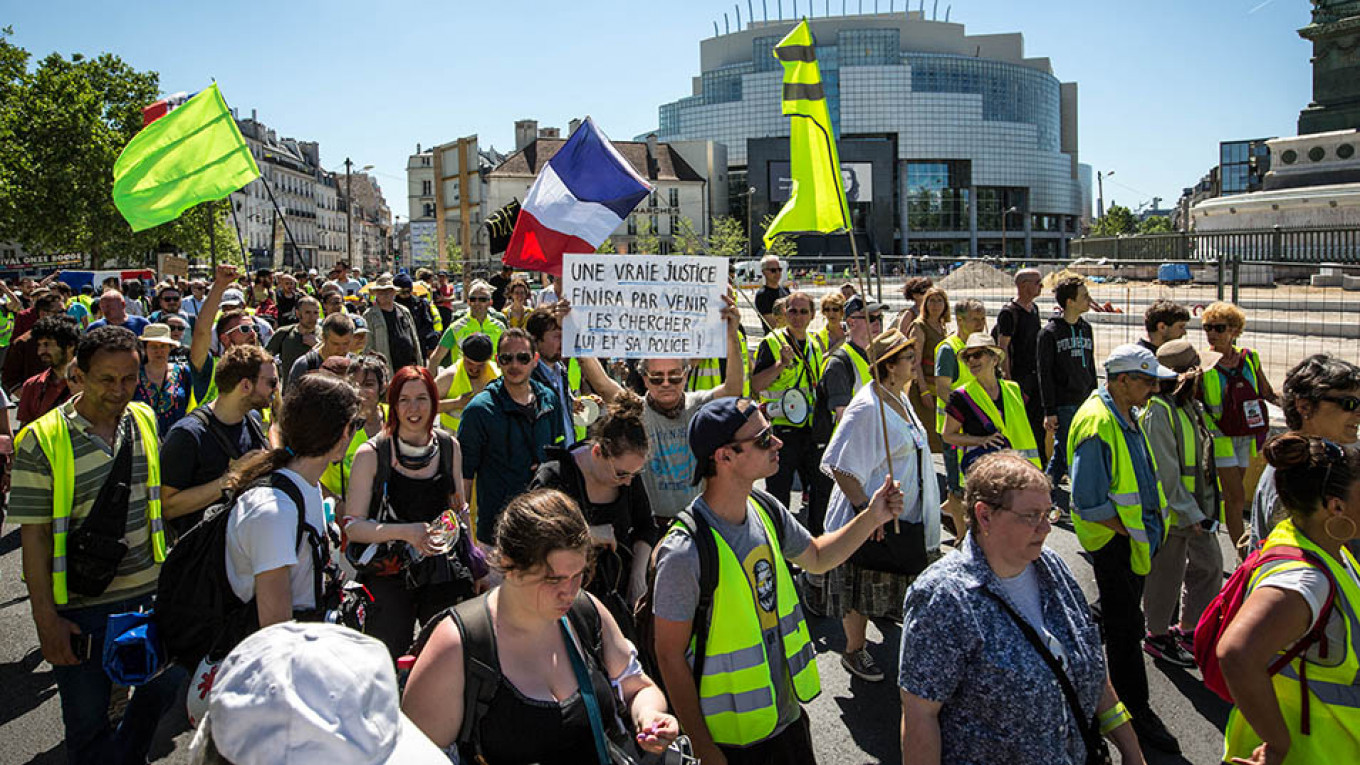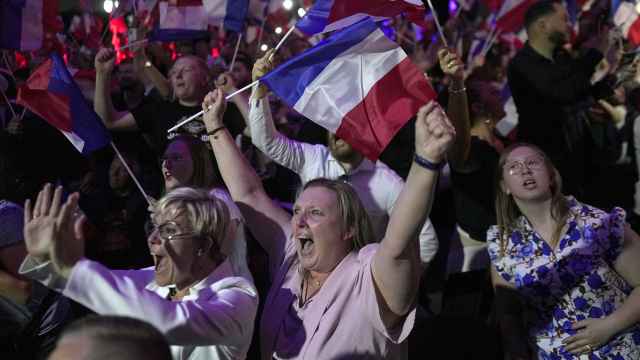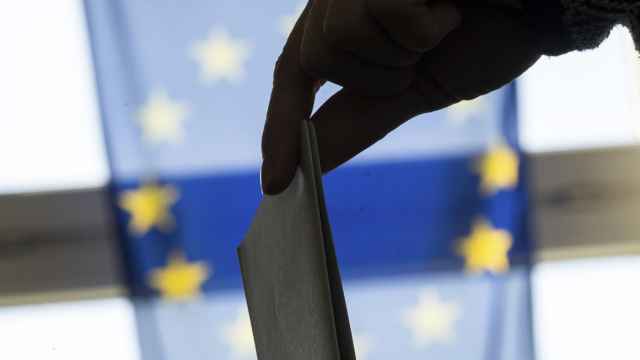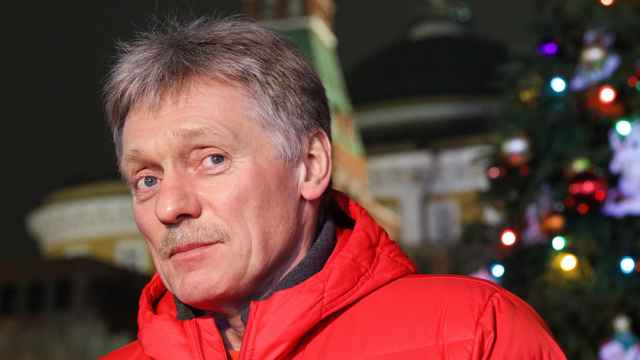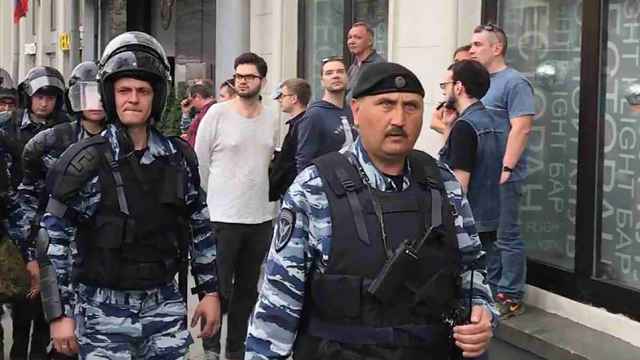During their generally friendly meeting on Monday, French President Emmanuel Macron and his Russian counterpart Vladimir Putin traded barbs about how their respective countries treat political protesters.
The exchange should be instructive to those who buy and spread the Kremlin propaganda's argument that the violence unleashed on Moscow protesters in recent weeks is somehow justified by France’s tough response to the Yellow Vests.
I must start with a disclaimer: I consider the suppression of protests in both countries to be disproportionate. I don’t buy the argument that the Yellow Vests deserved tougher treatment than the Moscow protesters because they were more violent. Obviously, there are limits to what authorities can tolerate if they are to protect the lives and property of other citizens and defend the rule of law. But violence is a vicious circle: “Who started it?” usually isn't a smart question to ask.
There is, though, a fundamental difference between the French and the Russian responses which I think neither Putin nor Macron quite understands.
In France, Putin made his first public comments on the protests that were triggered by the authorities’ refusal to allow anti-Kremlin candidates to take part in next month’s municipal election in Moscow.
His comments were hardly surprising: The rejected candidates should take their grievances to the courts and no one has the right to break the law by provoking mass disturbances. One could hardly expect Putin, famous for never retreating under pressure, to say anything else. But then he added:
I’m a guest here and I’m a little embarrassed to say this, but I’m forced to say it because you’re asking such questions. We all know the events that had to do with the so-called Yellow Vests, during which, by our calculation, 11 people died and 2,500 were injured, including 2,000 police. We wouldn’t like similar events to take place in the Russian capital, and we’ll do everything to keep our domestic political situation strictly within the framework of existing law.
Putin's statistics were questionable: While 11 deaths have been attributed to the Yellow Vest protests, many more were wounded than 2,500 — and the majority of them were demonstrators, not police. But Macron ignored this when he retorted:
In France, those who demonstrate are able to freely take part in elections. The Yellow Vests were free to participate in the European elections and will go to the local elections.
That, of course, should have been a killer rejoinder, but it didn’t quite work as such. The Yellow Vests failed miserably in the European election in May. The essentially leaderless movement was too disunited and politically inexperienced to get anywhere. It produced two lists of candidates, neither of which garnered even 1% of the vote. A complex political system like France’s is difficult for outsiders to penetrate. Macron and his fellow party members are of the elite, and, unlike the Yellow Vests, know how to play the game.
Unable to create a powerful political force of their own, 44% of Yellow Vest supporters took their protest votes to the far right National Rally party, according to a poll published just before the election. The National Rally came first in the ballot, but its nationalist agenda doesn’t really help the Yellow Vests’ mainly economic demands.
The causes of the two protests are essentially similar: France’s poor and Moscow’s educated class feel they are unable to play successfully by the existing rules because their voices aren’t being heard. One could argue that the Yellow Vests’ agenda is all about resentment coming from people left behind by progress, while educated Muscovites are trying to move their country forward; but that kind of difference shouldn’t matter when it comes to democratic representation.
The basic difference between what happens to protesters in Russia and in France isn’t so much about democracy as about freedom. In Moscow, the rallies’ organizers were careful to say in their social media posts that they weren’t calling on anyone to attend — otherwise they would be leaving themselves open to criminal prosecution. The protesters didn’t burn cars or break windows because they knew the system would ruin their lives by throwing them behind bars for years. Even now, some of the demonstrators are being tried on the flimsiest of evidence for allegedly resisting police. On the other hand, the riot police, for all their eager truncheon work, have inflicted few serious injuries, and no one has died. Had there been more bloodshed, Putin would have had much more to fear from the protesters.
In other words, in Russia — which isn’t a free country by any definition — the sides are if not exactly scared of each other, then cautious to avoid a ruinous escalation.
In France, the discontented are emboldened by a centuries-old barricade tradition. Nor are police inhibited by their commanders’ fear that the ruling regime might fall if they give as good as they get. In the end, it’s a legitimate fight on both sides: One asserts its freedom to protest and make its voice heard by an elite they believe is deaf to quieter calls, while the other defends the legal boundaries of that freedom.
Those freedoms — of speech and assembly — take precedence over the rights to elect and be elected because they allow the politically unrepresented to exert an influence. Despite their failure, the Yellow Vests have forced Macron to pay more attention to social policy and to show more interest in ordinary citizens’ grievances. In Russia, these basic freedoms are as suppressed as electoral democracy. That’s why Putin’s oft-repeated claim that Moscow is a more peaceful city than Paris is misplaced: The system he has built will eventually be brought down by a bigger explosion of anger than free France is ever likely to see.
This article was originally published by Bloomberg.
A Message from The Moscow Times:
Dear readers,
We are facing unprecedented challenges. Russia's Prosecutor General's Office has designated The Moscow Times as an "undesirable" organization, criminalizing our work and putting our staff at risk of prosecution. This follows our earlier unjust labeling as a "foreign agent."
These actions are direct attempts to silence independent journalism in Russia. The authorities claim our work "discredits the decisions of the Russian leadership." We see things differently: we strive to provide accurate, unbiased reporting on Russia.
We, the journalists of The Moscow Times, refuse to be silenced. But to continue our work, we need your help.
Your support, no matter how small, makes a world of difference. If you can, please support us monthly starting from just $2. It's quick to set up, and every contribution makes a significant impact.
By supporting The Moscow Times, you're defending open, independent journalism in the face of repression. Thank you for standing with us.
Remind me later.



